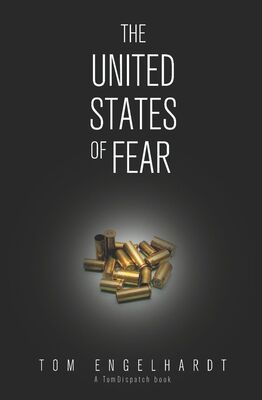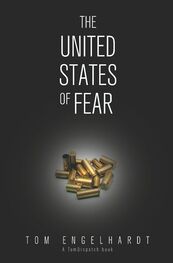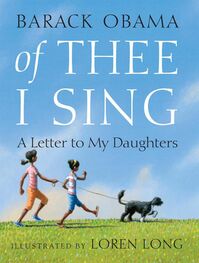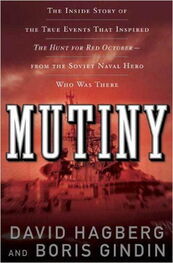In the Chinese case, it also helps when that country uses its control over rare earth metals to threaten Japan in a dispute over territorial waters in the East China Sea, begins to muscle neighbors on the high seas, and—so rumor has it—is preparing to name its refurbished aircraft carrier after the Qing Dynasty admiral who conquered the island of Taiwan.
The Unpredictability of China
Still, for all those naval- and air-power types who would like to remove American power from a quicksand planet and put it offshore, for those who would like to return to an age of superpower enmity, in fact, for all those pundits and analysts of whatever stripe picking China as the globe’s next superstar or super evildoer, I have a small suggestion: take a deep breath. Then remember: we’ve already been through this once. Might it not be worth approaching that number-one prediction with more humility the second time around?
Back in 1979, Ezra Vogel, Harvard professor and Asia specialist, put out a book that was distinctly ahead of its time in capturing the rise to wealth and glory of a new global power. He entitled it Japan as Number One: Lessons for America , and in praising the ways Japanese industry operated and the resulting “Japanese miracle,” the title lacked only an exclamation point. Vogel certainly caught the temper of the times, and his scholarly analysis was followed, in the 1980s, by a flood of ever more shrill articles and books predicting (in fascination or horror) that this would indeed someday be a Japanese world. The only problem, as we now know: ’tweren’t so. The Japanese economic bubble burst around 1990 and a “lost decade” followed, which has never quite ended. Then, of course, there was the 2011 earthquake-cum-tsunami-cum-nuclear-disaster that further crippled the country.
So how about China as Number One: Lessons for America ? After all, the Chinese economy is threatening to leave Japan in the dust; if you were one of its neighbors, you might indeed be fretting about your offshore claims to the mineral wealth under various local seas; and everyone knows that Shanghai is now Blade Runner without the noir, just forty-story towers as far as the eye can see. So what could go wrong?
As a specialty line, our intelligence services offer new administrations predictions on the world to come by projecting present trends into a recognizably similar future. And why shouldn’t that be the logical way to proceed? So if you project Chinese growth rates into the future, as the IMF has recently done, you end up with a monster of success (and a military with a global reach). It’s not that hard, in other words, to end up with the U.S. Navy’s nightmare enemy.
But so much on our present planet suggests that we’re not in a world of steady, evolutionary development but of what the evolutionary biologist Stephen Jay Gould called “punctuated equilibrium,” of sudden leaps and discontinuous change. Imagine then another perfectly logical scenario: What if, like Japan, China hits some major speed bumps on the highway to number one?
As you think about that, keep something else in mind. China’s story over the last century-plus already represents one of the great discontinuous bursts of energy of our modern moment. To predict most of the twists and turns along the way would have been next to impossible. In 1972, in the wake of the Cultural Revolution that Mao Zedong had set in motion six years earlier, to take but one example, no intelligence service, no set of seers, no American would have predicted today’s China or, for that matter, a three-and-a-half-decade burst of Communist Party–controlled capitalist industrial expansionism. The pundit who offered such a prediction then would have been drummed out of the corps of analysts.
No one at the time could have foreseen that the giant, independent-but-impoverished Communist land would become the expansive number two capitalist economy it is today. In fact, from the turn of the previous century, when China was the basket case of Asia and a combined Japanese/Western force marched on Beijing, when various great powers took parts of the country as their own property or “concessions,” followed by ensuing waves of warlordism, nationalism, revolutionary ferment, war with Japan, civil war, and finally the triumph of a Communist regime that united the country: the essence of China’s story has been unpredictability.
So what confidence should we now have in projections about China that assume more of the same, especially since, looking toward the future, that country seems like something of a one-trick pony? After all, the ruling Communist Party threw the dice definitively for state capitalism and untrammeled growth decades ago and now sits atop a potential volcano. As the country’s leaders undoubtedly know, only one thing may keep the present system safely in place: ever more growth.
The minute China’s economy falters, the minute some bubble bursts, whether through an overheating economy or for other reasons, the country’s rulers have a problem on their hands that could potentially make the Arab Spring look mild by comparison. What many here call China’s growing “middle class” remains anything but—and there are literally hundreds of millions of forgotten peasants and migrant workers who have found the Chinese success story less than a joy.
A Revolutionary Tradition for the Ages
It might take only a significant economic downturn, a period that offered little promise to Chinese workers and consumers, to unsettle that country in major ways. After all, despite its striking growth rates, it remains in some fashion a poor land. And one more factor should be taken into consideration that few of our seers ever consider. It’s no exaggeration to say that China has a revolutionary tradition unlike that of any other nation or even region on the planet.
Since at least the time of the Yellow Turban Rebellion in 184 CE, led by three brothers associated with a Taoist sect, the country has repeatedly experienced millenarian peasant movements bursting out of its interior with ferocious energy. There is no other record like it. The last of these was undoubtedly Mao Zedong’s Communist revolution. Others would certainly include the peasant uprising at the end of the Ming Dynasty in the seventeenth century and, around the time of the American Civil War, the Taiping Rebellion. That was led by a man we would today call a cultist who had created a syncretic mix of Chinese religions and Christianity—and who considered himself the younger brother of Jesus Christ. Before Qing Dynasty forces finally suppressed it and a series of other rebellions, an estimated twenty million people died.
When Chinese leaders banned and then tried to stamp out the fast-spreading Falun Gong movement, they were not—as reported here—simply “repressing religion,” they were suppressing what they undoubtedly feared could be the next Taiping Rebellion. Even if few intelligence analysts in the West are thinking about any of this, rest assured that the Communist rulers of China know their own history. That’s one reason why they have been so quick to crack down on any Arab Spring–like demonstrations.
In addition, though I’m no economist, when I look around this planet I continue to wonder (as the Chinese must) about the limits of growth for all of us, but especially for such a vast country that is desperate for energy and other raw materials, with an aging population and an environment already heavily polluted by the last forty years of unchecked industrial expansion. There is no question that China has invested in its military, put together a powerful (if largely defensive) navy, elbowed its neighbors on questions of undersea mineral rights, and gone on a global search to lock up future energy resources and key raw materials.
Читать дальше






